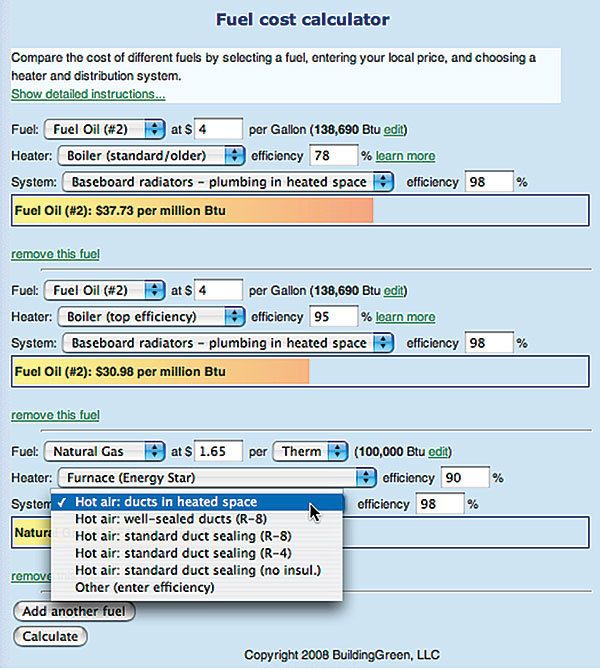Should you switch heating fuels?
BuildingGreen.com has an interactive online calculator to make comparing fuel costs simple

Rising energy prices have made heating fuels that once were affordable seem quite expensive. Heating oil, for example, is projected to average $4.13 per gal. this winter, up 35% from last year, according to the Energy Information Administration’s Web site (www.eia.doe.gov). Both natural-gas and electricity prices are expected to be about 9% higher, too.
Given the statistics and the state of the U.S. economy, it might be tempting to consider switching to a less expensive fuel source. But comparing fuel costs isn’t so simple. In fact, it’s pretty complicated. Fuel is sold by volume or weight, not by energy content. The only way to compare the cost of heating with a gallon of oil to the cost of heating with a kilowatt hour of electricity is to determine the price of each per unit of delivered heat, which is measured in British thermal units (Btu).
Finding the cost per Btu also has to include the efficiency of converting each fuel into heat and the efficiency of the distribution system. An old oil-fired boiler, for example, is about 78% efficient, but electric baseboards are 100% efficient.
The folks at BuildingGreen.com have developed a sophisticated yet easy-to-use interactive online calculator to make the comparison process simple (www.buildinggreen.com/calc/fuel_cost.cfm). The calculator provides options for comparing fuel oil, electricity, natural gas, propane, firewood, pellets, corn, kerosene, and coal, including various heaters and distribution systems. You’ll find detailed instructions within the calculator as well.
























